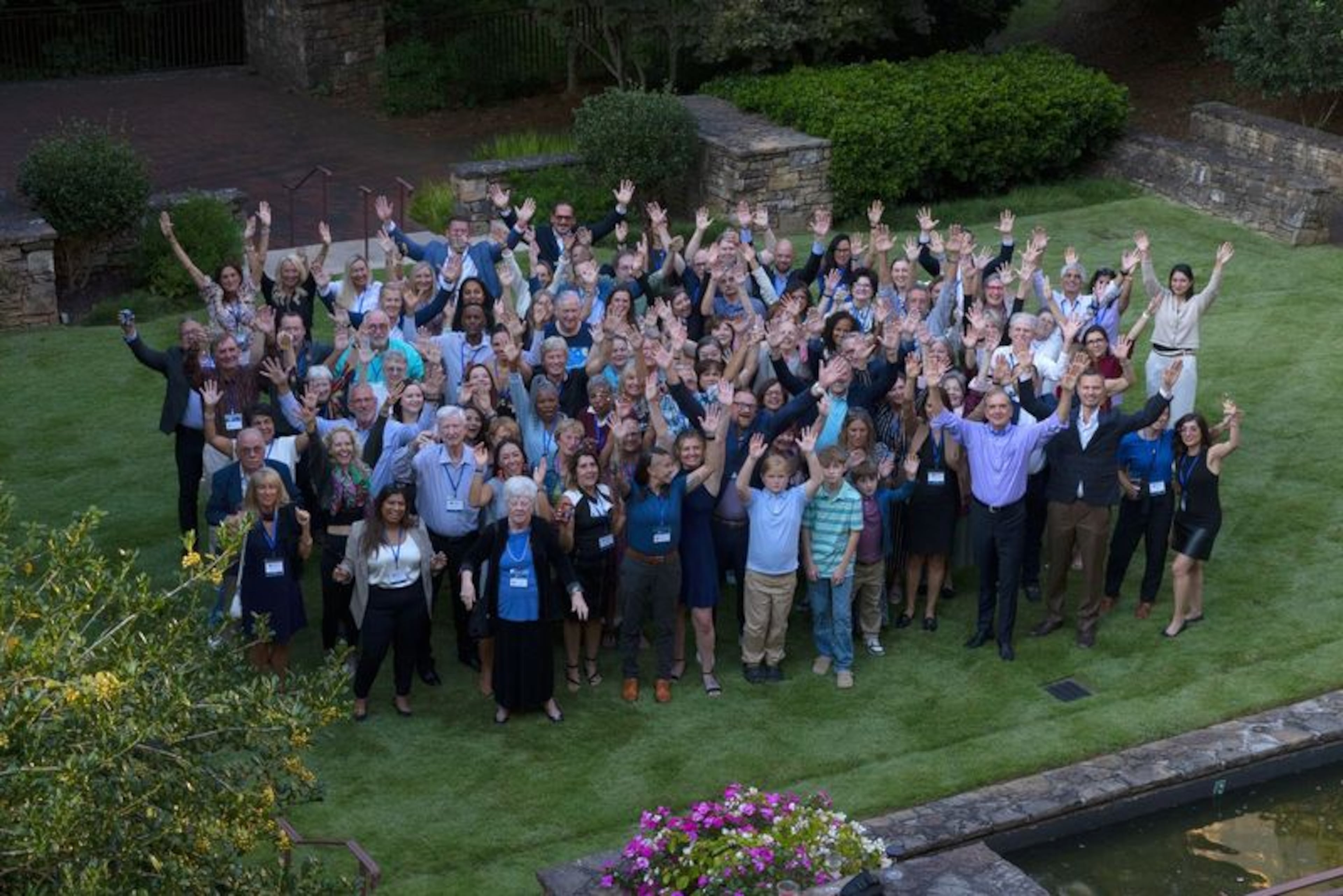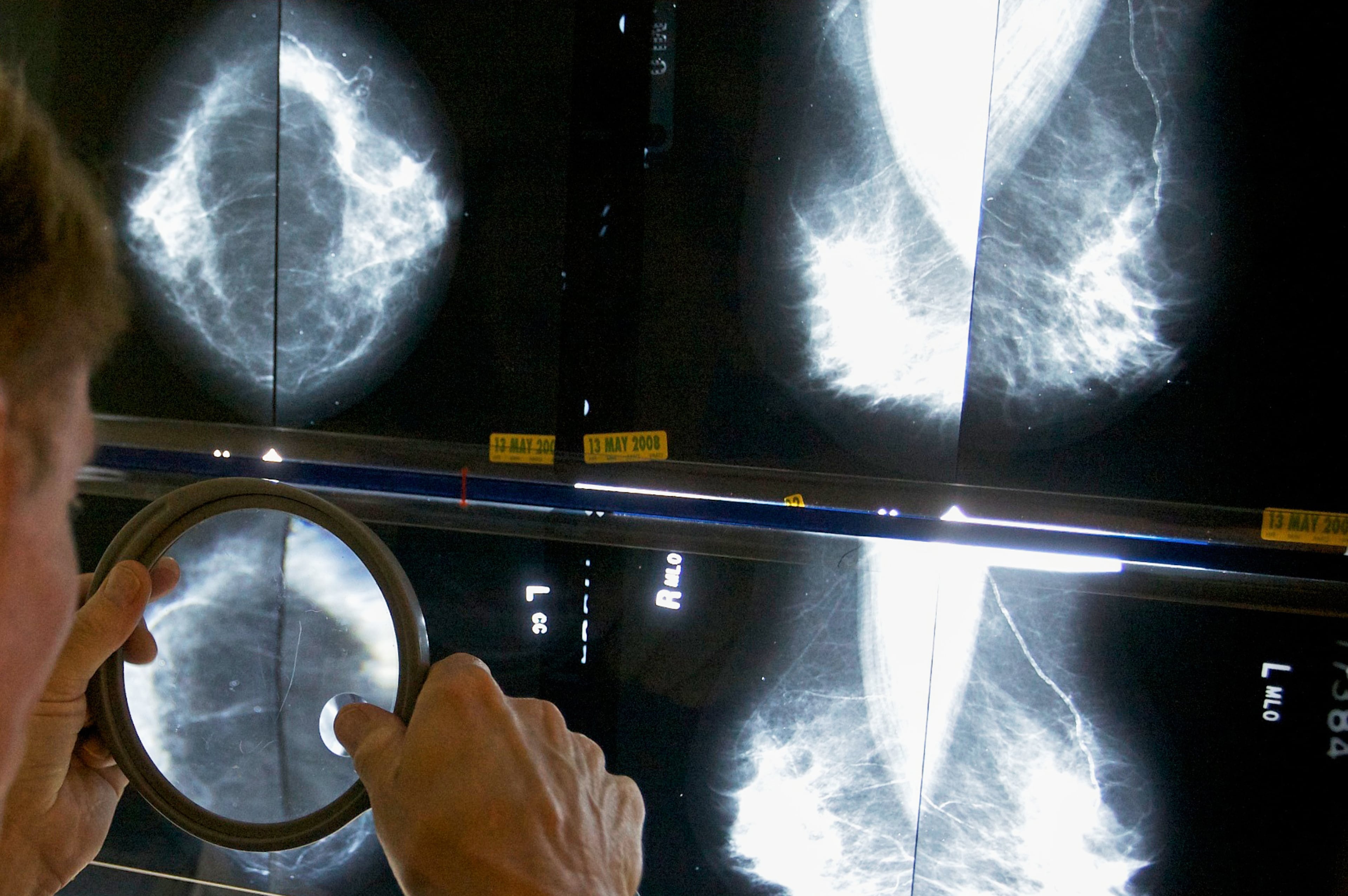PeachJAM connects community in fight against rare disease

This month, patients and medical experts met on Emory’s campus to discuss a little-known disease that impacts thousands of Americans.
At the annual PeachJAM — the nation’s only event dedicated to spotlighting Immunoglobulin G4-related disease — researchers shared their latest findings, aiming to raise awareness and advocate for patients affected by this rare condition.
“Nobody has all the answers, including the experts that are here,” said Dr. John Stone, director of clinical trials, Division of Rheumatology at Massachusetts General Hospital, and the executive chairman of the IgG4ward! Foundation.

Immunoglobulin G4-related disease (IgG4-RD) is a chronic inflammatory condition that can cause masses and lesions in various parts of the body, potentially leading to organ dysfunction, failure or even death. Its symptoms vary widely depending on the organs affected, making diagnosis particularly challenging.
It is treatable but highly misdiagnosed — or not diagnosed at all — and often leads to irreversible organ damage if timely care is not administered. It takes five to seven years for the average person to reach a diagnosis because of the extensive symptoms and its ability to mimic other conditions.
IgG4-RD was first noticed in Japan during the 1990s, where doctors regarded it as a new form of pancreatitis. By the early 2000s, research papers started to be written about the condition, and in 2011, Stone held the first international conference for disease in Boston.
“There was so much unknown about this condition … we just couldn’t connect the dots,” Stone explained to The Atlanta Journal-Constitution. “It was revelation after revelation really coming out at first, like, it affects this organ also, it affects the respiratory system, the lungs, the brain and everything.”
There was much to celebrate at the patient jamboree‚ with the FDA’s recent approval of Uplizna — the first-ever approved treatment for IgG4-RD — marking a major milestone for the community.
For Sabrina Riddle, a mother and an Atlanta resident, her journey with IgG4-RD began in 2013 with pain and inflammation in her right ear. After drainage and antibiotics did nothing to cure it, her doctor opted for a CT scan, where they found multiple growths in her ear cavity.
“In the recovery room, (the doctor) says, ‘I’m pretty sure you have cancer. I’ve never seen anything as invasive as this in my life,’” Riddle recalled.
Although the masses were sent to a biopsy and came back noncancerous, Riddle’s medical team saw that they kept growing back after removal and sent her through chemotherapy.
“The doctors were trying to figure out what’s going on, but no one knew because they just weren’t familiar with the disease itself,” she said. “To be able to give the disease a name was relief because now I know the name is not cancer.”
It was not until three years after first experiencing her initial symptoms that Riddle was finally referred to an IgG4-RD specialist at Emory Healthcare, Dr. Arezou Khosroshahi. By then, she said she had undergone unnecessary radiation, five surgeries, and the loss of hearing in her right ear — all before receiving an accurate diagnosis and proper treatment.
“It’s not a week that goes by and I don’t have a patient who cries in my office saying that, ‘you are the first person who knows this disease,’” Khosroshahi explained.
Today, Riddle is mostly in remission and gets a treatment every one to two years. However, she still suffers from “flares,” which manifest as “incredibly painful headaches that bring on seizures and visual disturbances.”
Damon Brooks had a similarly frightening journey to diagnosis, after swelling in his toes sent him to the doctor’s office. His blood work came back abnormal, and an impromptu CT scan was even more harrowing.
“(The doctor) came back with this face that just changed. He said, ‘Well, you’re not going home. You have tumors throughout your abdomen area. Tumors in your stomach, two tumors on your kidneys. You have a tumor in your liver, your pancreas is inflamed, and you have metastatic cancer,’” he told the AJC.
As Brooks endured days in the hospital under a misdiagnosis, the swelling in his feet and legs worsened to the point where he could barely walk. Five months later, he was properly diagnosed with IgG4-RD, and after being put on steroids to treat it, his symptoms immediately went down.
“Every part of my body was swollen at that point,” Brooks said. “I think my heart was enlarged.” Finding a correct diagnosis was a relief for him; however, it brought up complicated feelings as his mother and aunt both passed from complications with chronic autoimmune disorders.
“I was happy that I found out what it was,” he said, “and then had to overcome the fear because of what happened with my mom, too.”
With continued research, growing recognition, and the dedicated efforts of organizations like the IgG4ward! Foundation, there is real hope on the horizon — for earlier diagnoses, better treatments, and a future where no patient feels alone in their journey.


